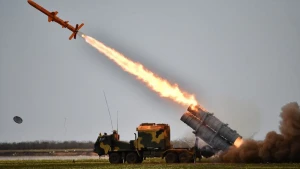
Migrants, social lifts, and why “it's happened before”
Trump's victory has opened up the possibility for many people not to hide. To open their arms to xenophobia, to outright racism, to misogyny (genuine misogyny, not just in a parodic sense)
Well, to each their own. It’s especially evident that Europeans tend to exhibit Islamophobia, while in the United States, there’s a growing hostility towards migrants from neighboring countries.
It is, of course, instructive to examine how this xenophobia and hysteria are formed. This is not the first time it has happened.
For instance, the first major migration crisis in the United States occurred when large numbers of Irish refugees arrived due to the Great Famine. They were viewed as "damned Catholics" who serve the Pope, and were also considered nothing more than peasants. The religious factor was significant in the United States even in the 21st century—imagine how it was in the 19th century.
Of course, the Irish were not truly considered fully human, so they were mostly relegated to thankless and low-paying jobs. Those who made it to the western part of the country had to compete with Chinese workers, who were brought in large numbers as slav… a labor force after California's annexation. These Chinese workers, too, were not seen as equals. In the course of this competition, the Irish engaged in violent actions against their competitors, effectively organizing an ethnic cleansing of sorts.
Discrimination based on religion, the status of third-class citizens, and the harsh treatment endured by the Irish symbolized the first 30 to 50 years of their experience in the United States. Of course, they responded: their gangs, structured as a parody of Catholic orders, became, in effect, the first American "mafia."
These Catholics, who primarily settled in New York and Boston, also frequently traveled to the British colony of Canada. They took guns, explosives, and a jolly spirit with them. Their purpose was staging pogroms against the British, targeting both soldiers and civilians. If you are marginalized in society, you will inevitably seek someone to blame—especially when the "main enemy" who deprived you of your homeland is so close at hand.
Politically, the Irish, who were religious pariahs, found support from the Democratic Party. After the defeat of the slave-owning South in the Civil War by the Republican government, the Democrats lost their primary base of support among traditional northern voters. They began to champion the rights of the oppressed Irish, who were pouring into the factories of the burgeoning American industrial revolution. This is how the Democratic Party began its transformation into a defender of workers' and minority rights—initially those of ethnic and religious groups.
Next, the Italians (mostly from the rural south) and Jews (from the same traditional towns in Eastern Europe) joined the party. By then, they too had found themselves relegated to the status of third-class citizens. While the Irish were entering not only factories and gangs but also the police force, the Italians and Jews took their place at the bottom of the social ladder. A similar pattern unfolded with Latin Americans, particularly in the 20th century. The mass migration of Mexicans to the United States was closely tied to World War II, as there was a critical need for labor during that time.
Why did each wave of migrants, who were perceived exclusively as third-class people and performers of the least skilled labor, give rise to ethnic gangs and specific religious and political practices? Because no one was engaged in integration, ghettos emerged by themselves, and it took 30-50-70 years for a community to become more or less integrated into society, when it would generate capital and political representation.
In both Europe and the United States, some of the most telling examples of the logic "I came, but no one else should, because they are savages" come from immigrants from the former USSR or other Eastern Bloc countries. This group represents the last large wave of migration to these regions after the end of the Cold War. That’s why it's especially ironic to see posts from "Uncle Vanya in Munich" or "Sister in Chicago" complaining about how "these Mexicans (Arabs) are so annoying, and there's no life for the natives anymore."
What is happening with migration in the U.S. and Europe is a natural process. Because attracting migrants is economically necessary, but at the same time, social lifts and integration approaches have not evolved much in 200 years. And multiculturalism hasn't worked out very well either. Now the U.S. and Europe are trying populist tools that will not work. And then something adequate will come along. Because, again, history cannot be stopped. You can only adapt to it.
About the author. Yuriy Bohdanov, publicist, specialist in strategic communications in business, public administration and politics
The editors do not always share the opinions expressed by the blog authors.
- News













































